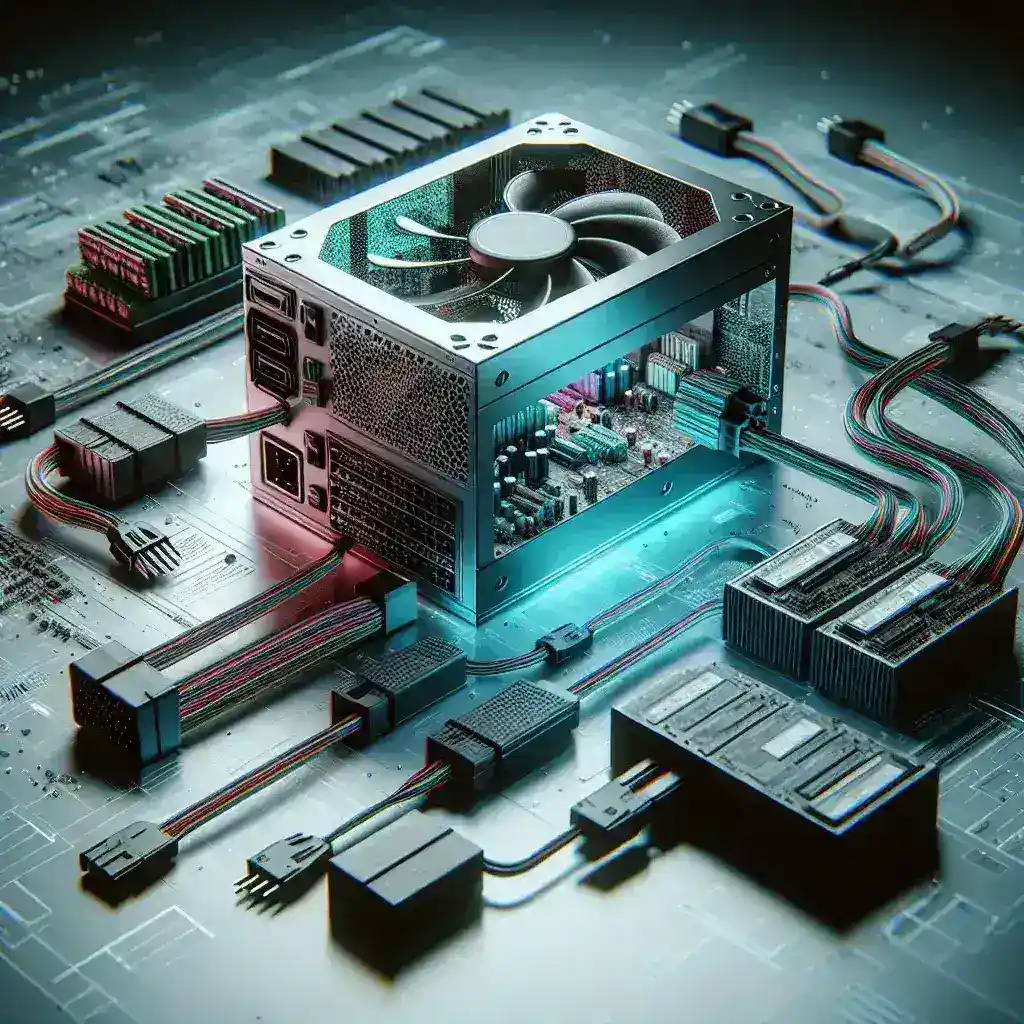Modular power supplies have become increasingly popular among PC builders and enthusiasts for several reasons. Unlike their non-modular counterparts, these power supplies allow users to connect only the cables they need for their specific setup, reducing clutter and improving performance. In this article, we’ll explore the numerous benefits of using a modular power supply in detail.
Enhanced Cable Management
One of the primary advantages of modular power supplies is the ability to manage cables effectively. In a traditional non-modular PSU, all the cables are permanently attached, leading to unnecessary clutter inside the PC case. This clutter not only looks untidy but can also interfere with other components.
| Type of Power Supply | Cable Management |
|---|---|
| Non-Modular | All cables are permanently attached, leading to potential clutter. |
| Modular | Only necessary cables are attached, resulting in cleaner setup. |
Improved Airflow
Good cooling is crucial for any PC, and the state of the cables can significantly impact airflow within the case. With non-modular power supplies, the unused cables can obstruct airflow, leading to higher temperatures. Modular power supplies, on the other hand, allow for better airflow as only the required cables are used, minimizing obstructions.
Ease of Installation
Modular power supplies simplify the installation process. Imagine setting up a new build or upgrading your system with fewer cables to navigate around. This not only saves time but also reduces the stress associated with system setup and maintenance.
Customizable Cable Lengths
Another benefit of modular power supplies is customizable cable lengths. This feature is especially useful for builders who have specific cases with unique dimensions. Instead of having a mess of cables that are too long or too short, you can choose the perfect length for each connection.
Better Aesthetics
For those who take pride in the visual appeal of their PC build, modular power supplies are a game-changer. By reducing the number of visible cables, you achieve a cleaner and more professional look. This is particularly advantageous for builds with transparent panels where every detail is on display.
Future-Proofing
As technology advances, upgrading individual components of a PC becomes inevitable. Modular power supplies make this process more manageable by allowing you to add or remove cables as needed, without going through the hassle of managing a multitude of unused connections.
Increased Efficiency
Modular power supplies often come with higher efficiency ratings compared to their non-modular counterparts. This efficiency translates to better performance and energy savings in the long run. The 80 PLUS certification is one such standard that rates the efficiency of power supplies.
| Certification | Efficiency Rating |
|---|---|
| 80 PLUS | ≥ 80% |
| 80 PLUS Bronze | ≥ 82% |
| 80 PLUS Silver | ≥ 85% |
| 80 PLUS Gold | ≥ 87% |
| 80 PLUS Platinum | ≥ 90% |
| 80 PLUS Titanium | ≥ 92% |
Cost-Efficiency
While modular power supplies may initially cost more than non-modular ones, the long-term benefits often justify the investment. Improved efficiency, ease of upgrades, and better cooling can translate to savings on energy bills and extended hardware lifespan.
Conclusion
Choosing a modular power supply can significantly enhance your PC building experience. From improved cable management and airflow to better aesthetics and future-proofing, the benefits are extensive. Whether you’re a seasoned builder or a newbie assembling your first rig, a modular power supply offers advantages that make it a worthy investment.

